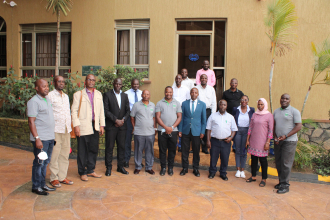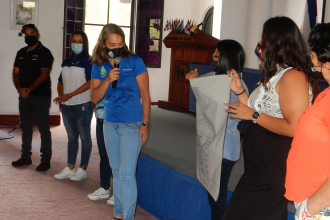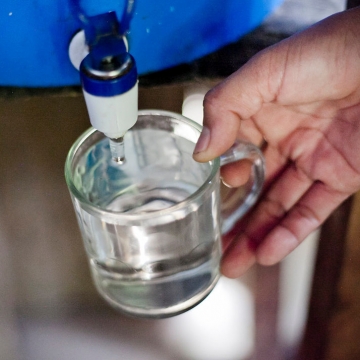A review of water-forest-energy-food security nexus data and assessment of studies in East Africa
The increasing scarcity of environmental resources and competition among forest, water, food and energy coupled with the ever-growing population and climate change pose a serious threat to natural ecosystems. In an effort to provide an integrated approach towards forest conservation as well as energy, water and food security within the broader context of climate change and variability, this study sought to undertake a literature and data review to provide a critical analysis and synthesis of the baseline and trends of the forest- water-food- energy security nexus in East Africa.
EfD-Mak centre impact activities 2021
The year 2020/2021 was rocked by mainly two major challenges that disrupted the center activities. The declaration of the Corona Virus Diseases (COVID 19) a global pandemic and the measures to curb…

EfD-Mak Centre holds strategic planning retreat to ensure proper environmental management in Uganda
On March 15th-18th 2022 the EfD-Mak center held a strategic planning meeting to write the strategic plan for the next five years to ensure that there is proper environmental management in Uganda…
Building resilience in Cartagena Bay: BASIC Cartagena resilient
The short title of the project is ‘BASIC Cartagena Resilient.’ The report summarizes the second phase of the BASIC project, covering research findings and milestones regarding coastal zones and their vulnerable populations: current rate of sea-level rise; issues of public health in communities; economic valuations of ecosystem services; hypoxic conditions inhibiting the bay’s ecosystem; sanitary conditions inadequate for touristic recreation; and metal concentrations above internationally recommended limits found in the bay’s sediments, fish and human populations (Annex 1.4).

EfD Central America helps Water Community Organizations interact with policymakers
In Costa Rica, Water Community Organizations (WCO) play a key role in providing water for about 1,5 million people, which represents nearly 30% of the population of the country. To support the WCOs…
The effect of forest land use on the cost of drinking water supply: machine learning evidence from South African data
Water quality amelioration is one of the key ecosystem services provided by forests in the catchment areas of water supply systems. In this study, we applied random effect models and the least absolute shrinkage and selection regression method of machine learning to South African panel data to estimate the causal effect of natural forest cover on municipalities’ water treatment cost. We controlled for a range of confounding covariates including other land cover variables including wetlands, plantation forests, grassland, woodland etc.

EfD South Africa addresses the knowledge gap in ecosystem service valuation
Ecosystems are vital to human wellbeing yet the value of the services they provide is often ill-understood in the context of national accounts and policy analysis. EfD researcher, Jane Turpie…
Water Use in the Kenyan Commercial Sector: Coping with Strategies to deal with Unreliability
The Environment for Development, Kenya (EfD-Kenya) is an environmental economics research Center housed at the Department of Economics and Development Studies. The Center holds monthly seminar series…

EfD Kenya discussed policies with stakeholders
EfD Kenya arranges a policy day workshop every year with researchers, policymakers, and other stakeholders, to discuss research findings and their potential implications on environmental policies and…
Pagination
- Previous page
- Page 13
- Next page

